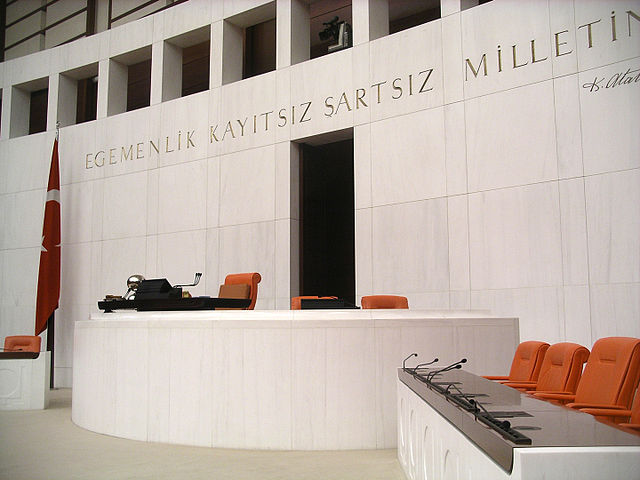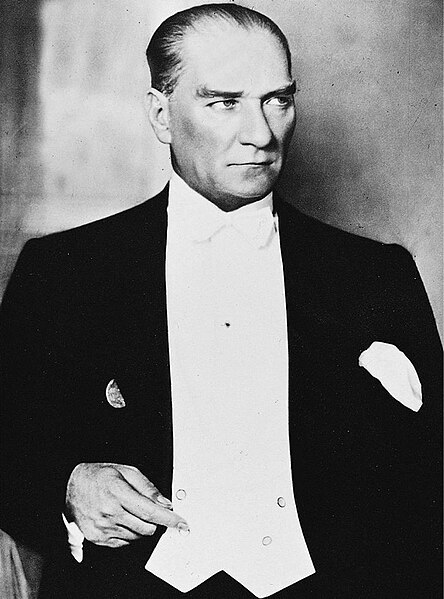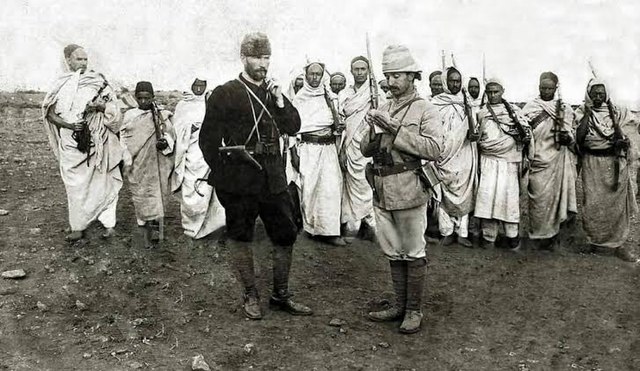Kemalism, also known as Atatürkism, or the Six Arrows, is the founding and official ideology of the Republic of Turkey based on the ideas and legacy of Mustafa Kemal Atatürk.
"Sovereignty belongs, without any restrictions or conditions, to the nation" embossed behind the speaker's seat at the GNA
The motto, "Ne mutlu Türküm diyene", embossed on the Kyrenia Mountains in Northern Cyprus
Atatürk's Six Main Principles symbolized by the Six Arrows
One of the lions at "Road of Lions" in Anıtkabir, which are replicas of ancient Hittite lion statues
Mustafa Kemal Atatürk, also known as Mustafa Kemal Pasha until 1921, and Ghazi Mustafa Kemal from 1921 until the Surname Law of 1934, was a Turkish field marshal, revolutionary statesman, author, and the founding father of the Republic of Turkey, serving as its first president from 1923 until his death in 1938. He undertook sweeping progressive reforms, which modernized Turkey into a secular, industrializing nation. Ideologically a secularist and nationalist, his policies and socio-political theories became known as Kemalism.
Atatürk in 1932
The house where Atatürk was born in the Ottoman city of Salonika (Thessaloniki in present-day Greece), now a museum
The reconstructed house of Atatürk's paternal grandparents, in the Ottoman village of Kocacık (Kodžadžik in present-day North Macedonia)
Atatürk (left) with an Ottoman military officer and Bedouin forces in Derna, Tripolitania Vilayet, 1912








